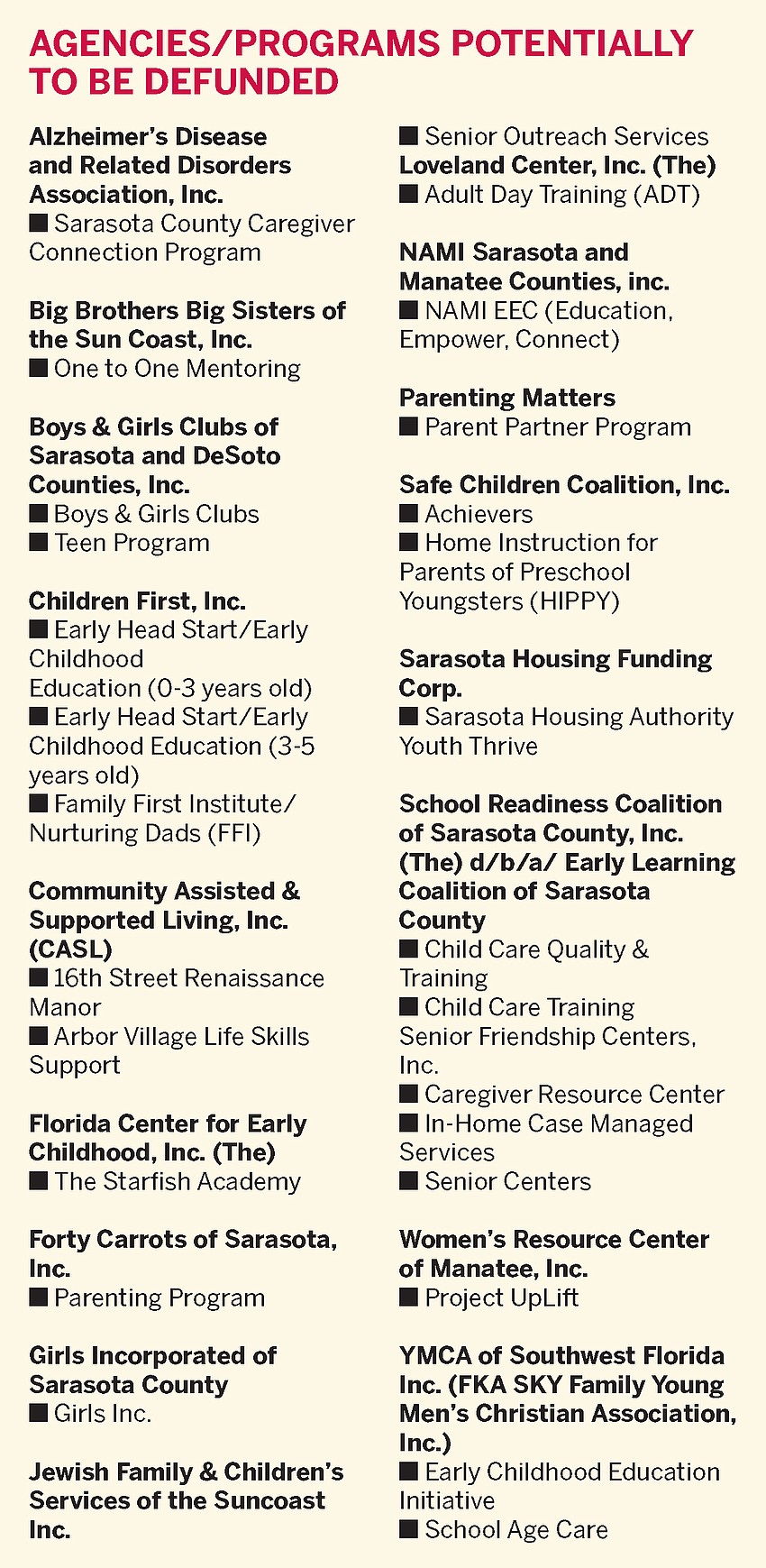- July 26, 2024
-
-
Loading

Loading
Once the champion behind creating a mental health taxing district to raise funds for mental health services, Commissioner Mike Moran seemed visibly upset during the Nov. 15, 2022 Sarasota County Commission meeting after the board-appointed Behavioral Health Advisory Council (BHAC) presented its funding recommendations, commenting, “Boy, we’ve lost our way.”
After years of research, surveys and hundreds of hours of volunteer committee work, the commission wants more time to discuss the process of funding human services and behavioral health programs and exactly what services should be funded with taxpayer dollars at a March 8 workshop.
“I don’t think there is another county in the country, especially in Florida, that has done as much research and no action has been done since 2018,” said Jennifer Johnston of the Gulf Coast Community Foundation and a member of BHAC. “The lack of action is not improving any outcomes, and many people are struggling.”
In 2018, a University of South Florida research scan of mental health services in Sarasota County commissioned by the Charles & Margery Barancik Foundation and the Gulf Coast Community Foundation identified gaps in mental health, behavioral and human services. A year later, Moran first introduced the idea of a mental health taxing district. This prompted the county to launch its own survey on the proposed district in 2020, in which 79% of respondents said they would be willing to pay more taxes to support mental health services. Commissioners created the Mental Health Dependent Special District in June 2021 and discussed raising the millage rate 1/10 of a mill, which would generate $6.5 million for behavioral health funding.
Ultimately, the commission did not raise taxes but put together a task force to assess mental health needs and appointed seven behavioral health experts and professionals to the BHAC to recommend funding for agencies and programs with the potentially earned $6.5 million as a guide. In March of 2022, the commission allocated $8 million of APRA funds to be distributed by the BHAC over three years beginning in 2023. From June to September of 2022, BHAC conducted 18 site visits and volunteered 526 hours evaluating 35 program applications. It finalized its funding recommendations for 12 programs that addressed eight of nine board-approved priorities with a request to rebid priority eight: “Increase psychiatric and outpatient capacity, particularly child and adolescent psychiatry.”
The BHAC presented these recommendations to county commissioners in November 2022. That meeting is where Moran’s frustration surfaced, especially when it came to priority eight. The BHAC recommended that priority eight applicant, Teen Court of Sarasota, not be funded for its Mental Health Counseling Expansion and Screening program. Moran’s wife, Lori, is chief operating officer of Teen Court of Sarasota. (As of press time, Moran did not respond for comment.)
After much discussion, the commission decided to delay the funding decision until the newly elected commissioners were in place and continued the agenda item until January. Prior to the Jan. 31 commission meeting, Moran attended a BHAC meeting where he presented a new proposal to restructure the process and what programs should be funded, causing alarm among multiple human services and behavioral health agencies.
In Moran’s new proposal, the BHAC would be replaced by a five-person advisory board appointed by the county commissioners. This new board would give recommendations on where Sarasota County should be spending resources with the commission setting the final priorities and allocating funds to the county staff. Staff would then review grant applications and bring back their recommendations to the commissioners, who would discuss and vote on the final allocations.
Moran has also proposed that social economic programs, such as: housing subsidies, daycare subsidies, job training and free legal services, should be funded by non-profits, community foundations, religious institutions and philanthropists. And that taxpayer dollars should fund the following:

At a Behavioral Health Stakeholders Consortium meeting on Feb. 17, chaired by P.J. Brooks, COO of Community Assisted & Supported Living Inc. (CASL), the group highlighted multiple agencies and programs have the potential to be defunded, under Moran’s new proposal. These organizations collectively received $1,971,128 in county funding in 2022.
Jon Thaxton, Gulf Coast Community Foundation’s senior vice president for community leadership and former Sarasota County commissioner, reminds us how blessed Sarasota County is with philanthropy. “However, we have this expectation or sense of entitlement that foundations will do it. Government is responsible for the health, safety and welfare of its citizens. With mental health there is a group of citizens in crisis and declining. It’s the government’s duty to provide so people can live sustainable lives, not end up in jails or youth programs or become a suicide statistic. Foundations can add to that. If it were working the way it should, Sarasota County would have the model for the country.”
With all the time, research and expertise allocated to getting mental health services and funding correct thus far, we must be able to come to some sort of consensus so lives are not disrupted by programs and services going unfunded. Reach out to your commissioners and attend the workshop scheduled from 9 a.m. to 5 p.m. March 8, at the Sarasota County Administration building.